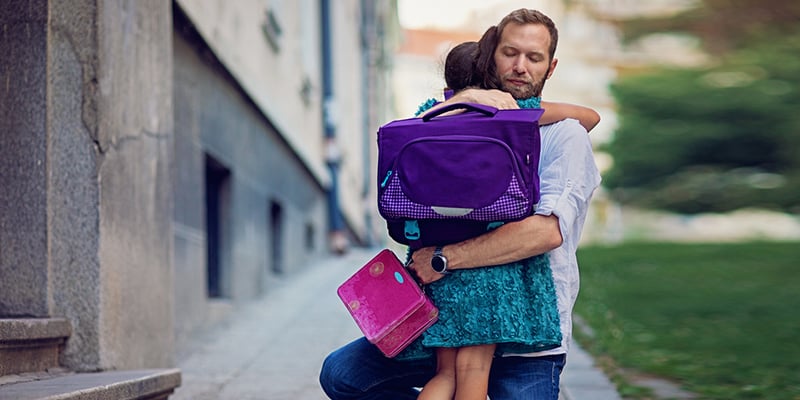
After months of quarantine, we’re getting close to that time of year when kids, teens, teachers, and parents typically shift into “back to school” mode. But this fall, life is anything but typical. Some school districts are going with online instruction only, others are going back to classroom study with no masks or physical distancing required, and still others are going to try some sort of hybrid model.
As a parent, what are you supposed to do?
FINDING YOUR WAY WHEN ANSWERS AREN’T CLEAR
Now, more than ever, people are having to navigate conflicting information and dissenting opinions on very important issues—health risks, economic fallout, and mental health consequences. On top of the onslaught of contradictory information from health officials, news media, schools, and other sources, there’s also your child’s wishes and comfort level to take into consideration. When you’re faced with uncertainty or options that you find unnerving, what can you do?
Get the facts.
Find out as much as you can about your options. Will your school district allow parents to choose whether to send kids back to school or to remain at home with online instruction? If you want to send your kids to school, but their school will be closed, is there an option to put your child in another school to fit your desires?
Know the safety plan.
If you think that in-classroom learning and socialization outweigh the health risks and your child or teen is itching to go back to school, find out what the school will be doing regarding the potential spread of COVID-19. Is it enough in your view, or is it going overboard?
Focus on what you can control.
Don’t let thoughts about things that are out of your control infest your mind. Constantly worrying about things that are beyond your control will ramp up your stress and fuel anxiety and depression. Keep your attention on the things you can do and let go of the rest.
Prepare to be flexible.
Anticipate that school policies may change between now and school start dates and that they may change days, weeks, or months after the school year begins. If you’re a rigid thinker, which is often associated with too much activity in a region of the brain called the anterior cingulate gyrus, you may expect things to be done in a certain way, which can make it far more difficult to cope with any changes. When you mentally prepare yourself for changes, you’re better able to roll with them without getting upset, irritable, or frustrated.
Know the pros and cons.
Your personal financial situation, job, and family dynamics will influence your decisions regarding back to school. Make a list of pros and cons in each of these areas to help you see what works best for your family.
Gauge your family’s anxiety levels.
If the idea of sending your kids back to school fills you—or them—with panic and anxiety, you may want to consider continuing distance learning. Some parents are even making the shift to homeschooling as a way to gain more control and avoid the uncertainty and potential health risks of going back to school.
Take responsibility for your choices.
When faced with too many choices or seemingly no good options, some people become paralyzed due to the fear of making the wrong choice. This can be mentally exhausting and increases stress and anxiety levels. When you freeze and can’t choose a path, it ultimately means that someone else will be making the decision for you. Then if things go wrong, you’re more likely to blame someone else, which is disempowering and is the #1 guaranteed way to ruin your life. Taking responsibility for your decisions in life, including those regarding back to school, is empowering and keeps you in the driver’s seat of your life.
Anxiety, depression, ADD/ADHD, and other mental health issues can’t wait. During these uncertain times, your mental well-being is more important than ever and waiting until life gets back to “normal” is likely to make your symptoms worsen over time.
At Amen Clinics, we’re here for you. We offer in-clinic brain scanning and appointments, as well as mental telehealth, remote clinical evaluations, and video therapy for adults, children, and couples. Find out more by speaking to a specialist today at 888-288-9834. If all our specialists are busy helping others, you can also schedule a time to talk.





Hi,
If parents decide that they don’t want to put their kids in school for a year, that it doesn’t matter if they study, what do you think might be the effects on children? Not even doing homeschooling.
Thanks,
Comment by Ana — July 27, 2020 @ 11:07 AM